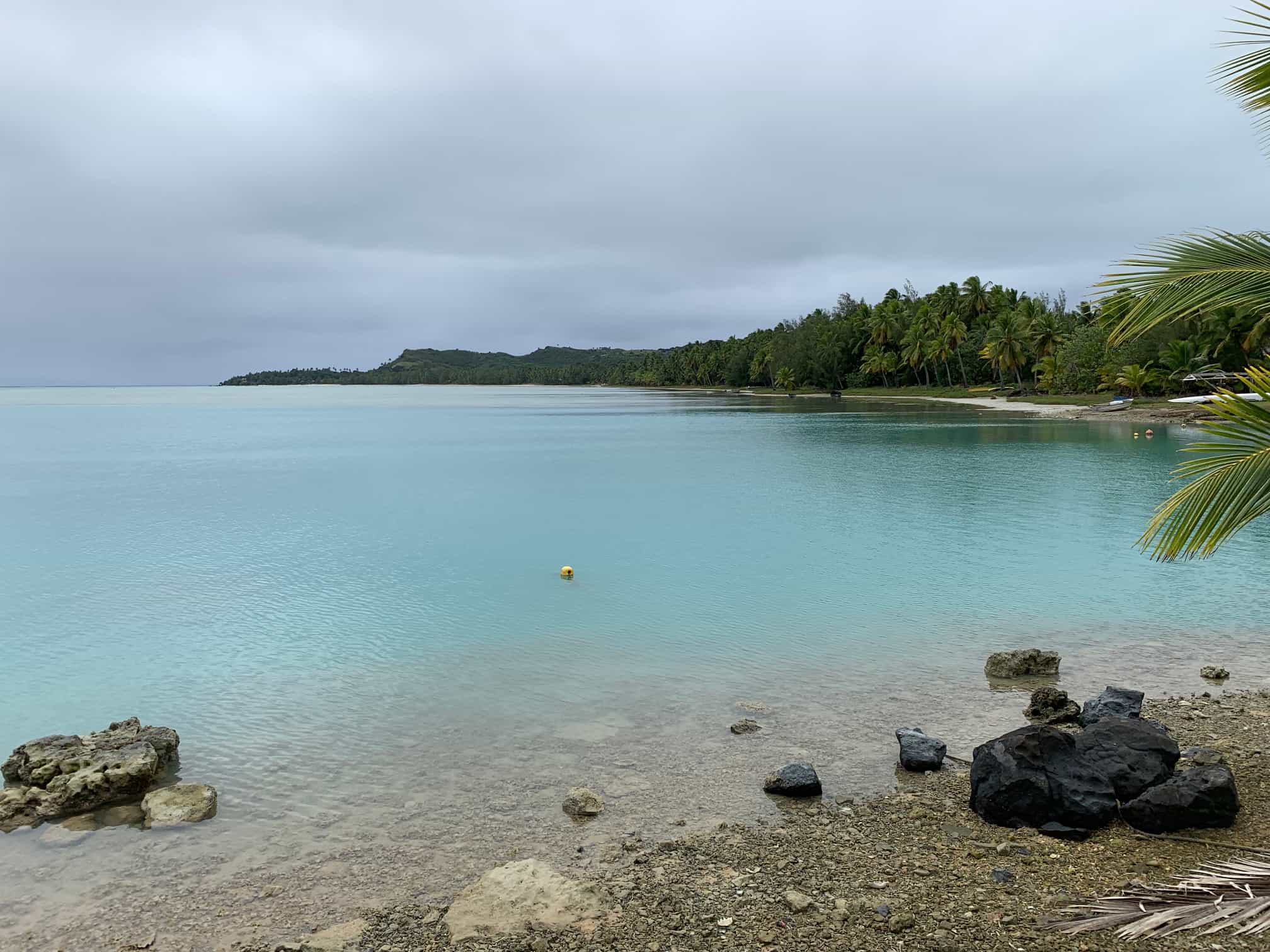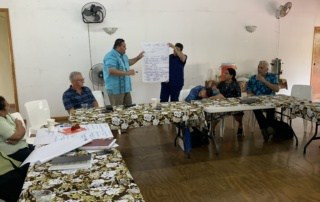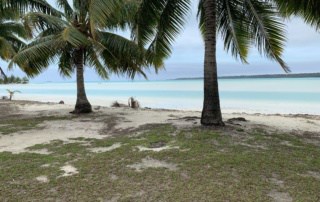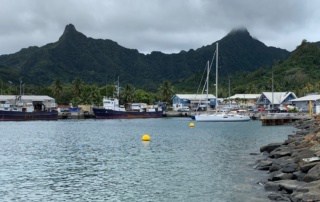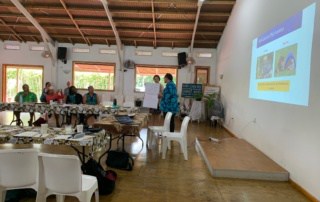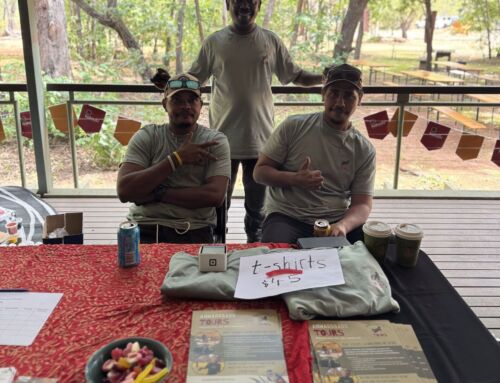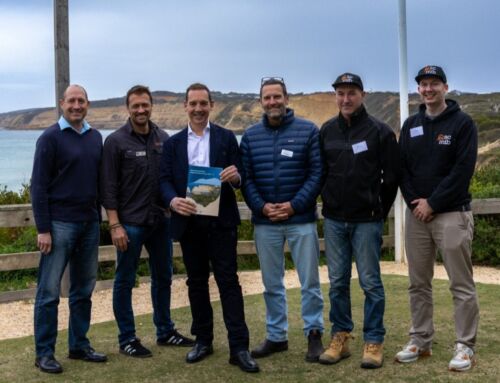“This is a climate emergency. The number of weather and climate-related disasters has more than doubled over the past forty years, Climate action begins with disaster risk reduction” – Mami Mizutori, Special representative of the Secretary-General for Disaster Risk Reduction.
Disaster risk reduction is the concept and practice of preventing new and reducing existing disaster risks through strengthening the resilience of people, systems and approaches. Increasingly best practice destination management includes having plans in place to be prepared to respond effectively in the event of crisis situations.
TRC consultants Chris Rose and Eilidh Thorburn together with Director Janet Mackay have spent the last week in the beautiful Cook Islands working with Cook Islands Tourism on the development of a Tourism Crisis Management Plan, a critical strategy in disaster risk reduction.
Effective tourism crisis management makes sure everyone has a common understanding of the crisis and the destination is ready to recover quickly and in a coordinated way. The purpose of a tourism crisis management plan is to:
- Ensure the safety of visitors, including making sure their needs are well integrated and thought about in national disaster response plans
- Ensure that the destination is ready for a crisis and can return to business as usual as soon as possible.
Tourism crisis management plans include the following key elements:
- Describe activation processes
- Allocate roles and responsibilities in times of crisis
- Identify control mechanics and coordination
- Include standard procedures
- Identify information requirements
- Establish communication methods
- Describe PR and media arrangements.
Tourism is the cornerstone of the Cook Islands economy, representing 80% of GDP (direct + indirect) in the Cook Islands so being prepared to respond and recover effectively is critical for both the tourism sector and the national economy. TRC facilitated over 20 stakeholder meetings, consulting with a wide group of people from government, private industry, and NGOs. The week in country finished with a strategic directions workshop with Cook Islands Tourism looking at the challenges, actions and outcomes of the Tourism Crisis Management Plan.
For countries like the Cook Islands that rely heavily upon the tourism industry, having a crisis management plan is in everyone’s interest as it allows the industry to bounce back faster and respond effectively. It also ensures that tourists are well integrated into national emergency planning and gives a framework to create and convey key messages to the media.
How would a disaster effect your tourism industry?
Tourism crisis management plans are best practice templates. Each crisis brings unique challenges and circumstances, thus tourism crisis management plans are made to be flexible dependent on the situation. TRC can help you prepare for a disaster by developing a custom plan. Contact us here for more details.
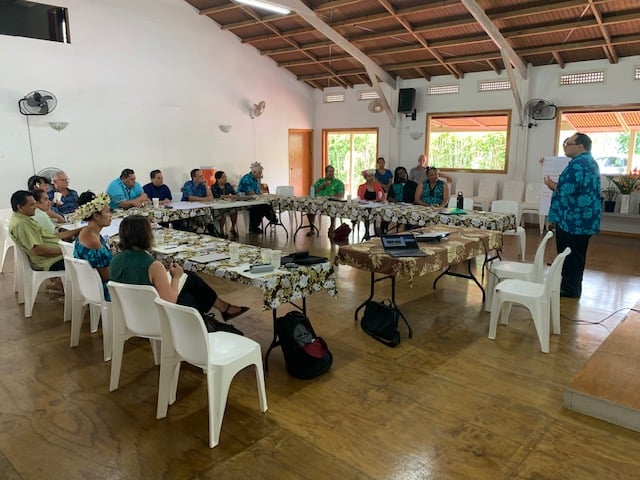
Meitaki (thank you) to Cook Islands Tourism for being such great hosts.


